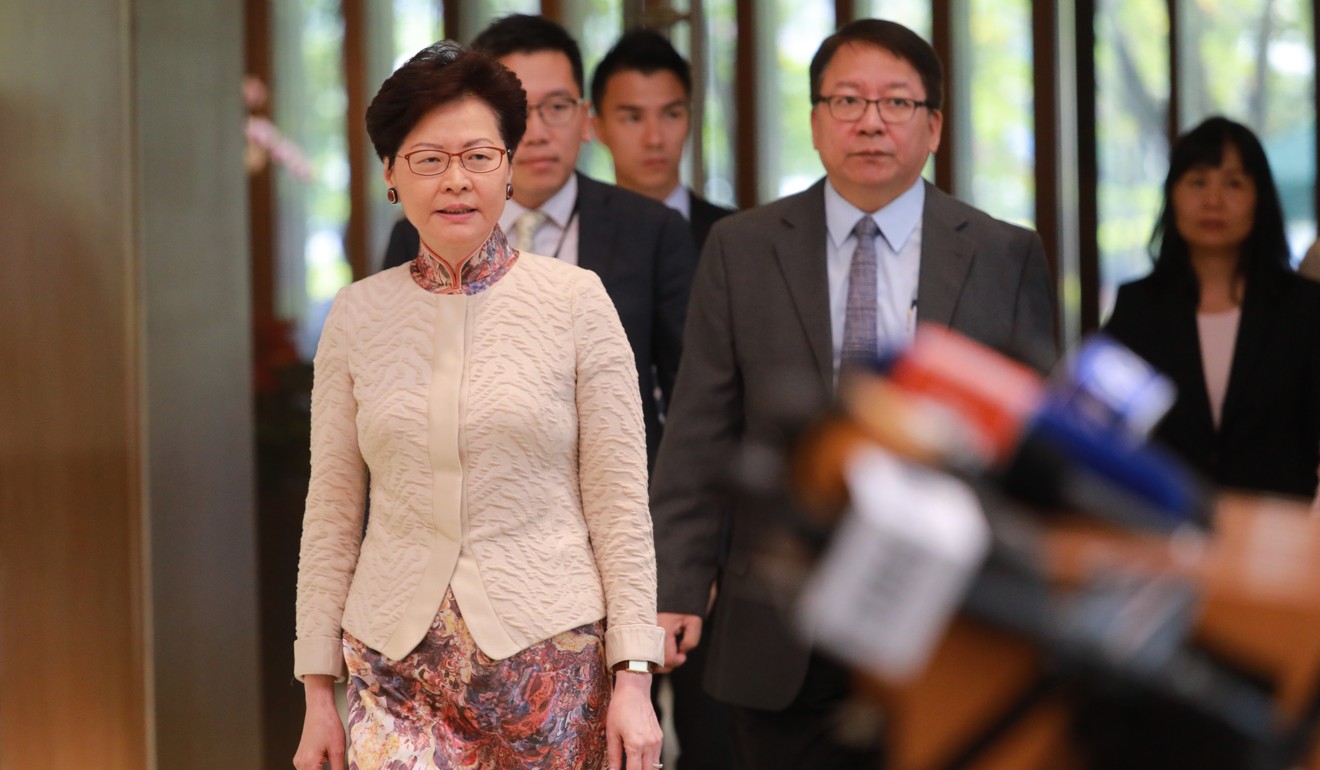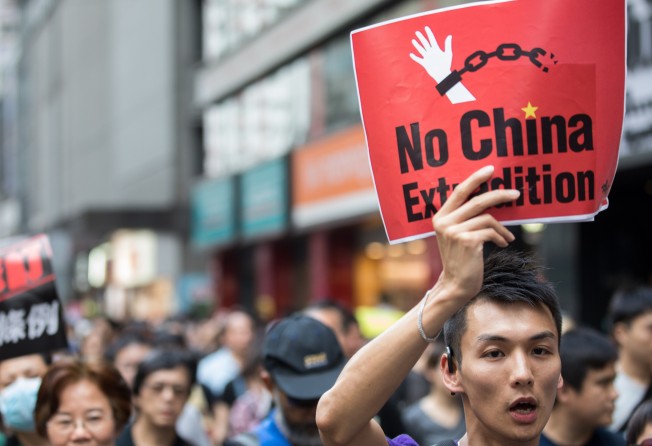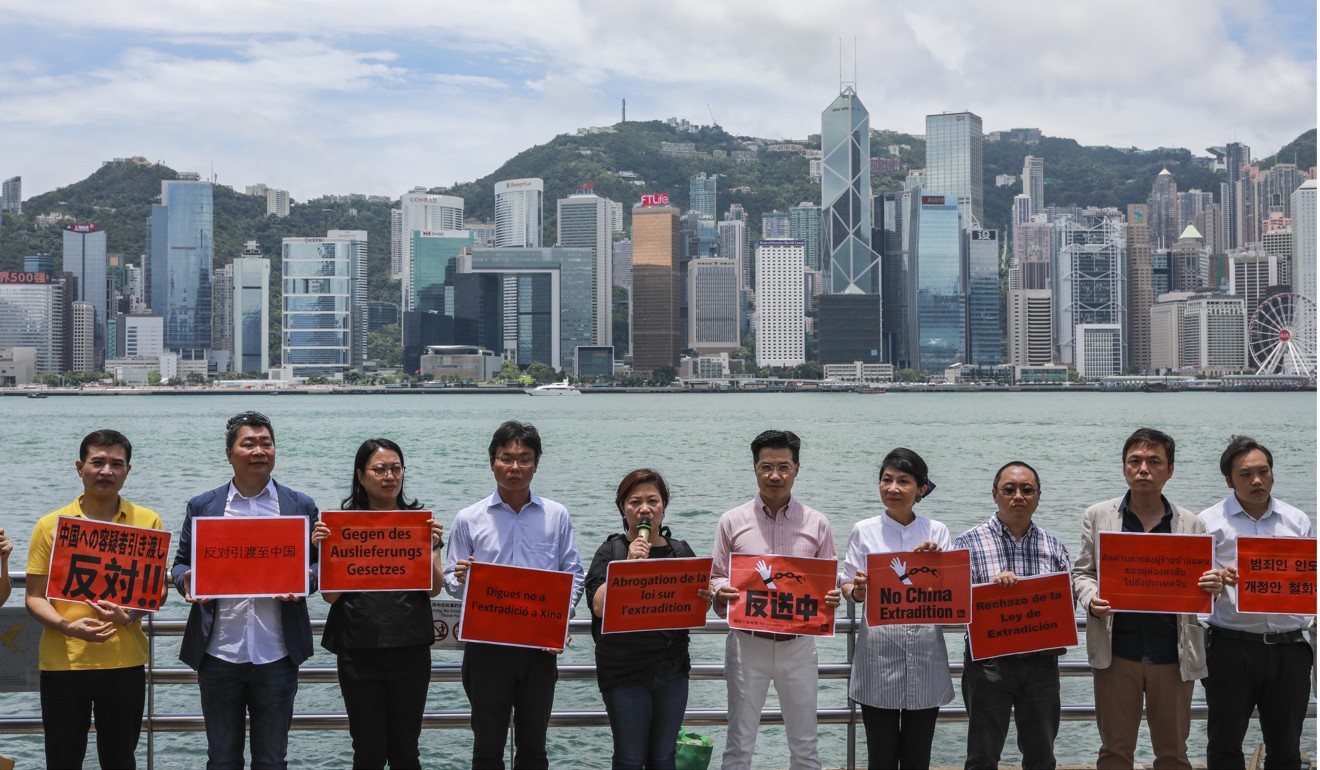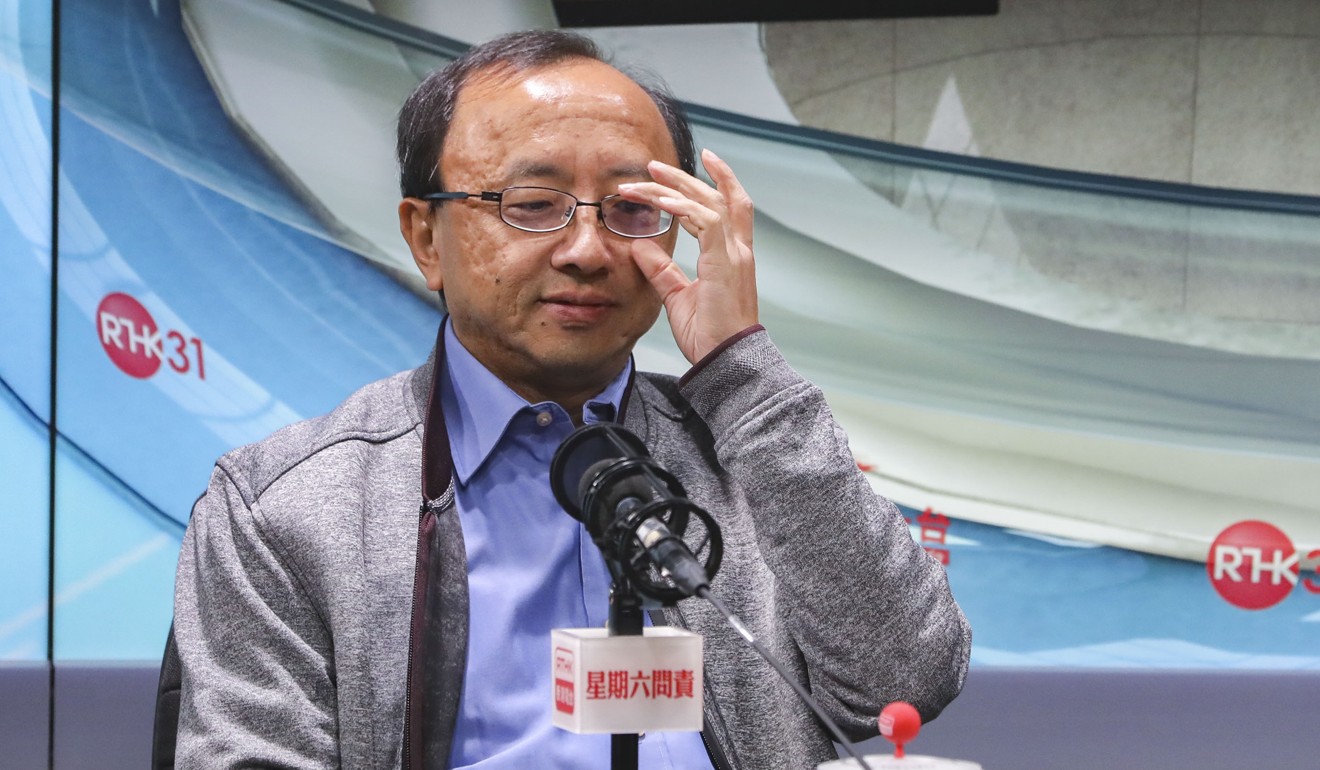
Hong Kong leader Carrie Lam ‘will not simply follow orders from Beijing’ on extradition requests and can refuse transfer of fugitives accused of crimes against defence or foreign affairs
- Lam says suggestion she will just follow central government instructions ‘totally unfounded and deviates from provisions in the law’
- One section of law involved in bill says chief executive ‘shall comply’ with instruction on matters where defence or foreign affairs would be ‘significantly affected’

Hong Kong’s leader has given an assurance she will not be able to simply follow orders from Beijing to transfer criminal suspects to mainland China under her government’s controversial extradition bill because of protections built into the legislation.
“There has been this reference, and maybe worry or fear or even allegation that the chief executive will just follow the instructions given by the central government and surrender whatever fugitives that the central government wants,” Chief Executive Carrie Lam Cheng Yuet-ngor said on Tuesday.
“This is totally unfounded and deviates from the provisions in the law. There are very detailed provisions in the law that will not allow that sort of situation to happen.”
Lam said she would have the discretion to reject rendition requests based on reasons of national defence and diplomacy under the government’s controversial extradition bill – which would allow the transfer of criminal suspects to jurisdictions the city does not have an extradition deal with, including mainland China, Taiwan and Macau – but did not clarify how she would respond if the rendition request came directly from the central government itself, and not another authority.

Lam was asked whether a Hong Kong suspect would be extradited to the mainland for trial without the safeguards of the local court process or her vetting if the case involved defence or foreign affairs.
“I cannot bypass the law and listen only to an order from the central government and extradite a non-extraditable person based on defence or diplomatic reasons,” Lam said.
Critics fear Beijing could use the new arrangement to target political opponents or that suspects would be sent to jurisdictions where a fair trial was not guaranteed.
According to section 24 of the Fugitive Offenders Ordinance – one of the two laws involved in the bill – when Beijing instructs the chief executive “to take, or not to take, an action” on a particular rendition request, on the grounds that the country’s interests in matters of defence or foreign affairs would be “significantly affected” otherwise, the chief executive “shall comply” with such an instruction.

Legal experts said the section only applied to incoming extradition requests from foreign jurisdictions, as the city did not have an arrangement with the mainland.
Should the amendment pass, it was unclear how the section would apply to requests potentially coming from Beijing.
Lam on Tuesday insisted the chief executive could reject such a request, even if a court found enough evidence to support the case.
Under the proposed arrangement, the final step in the extradition process involves the chief executive issuing a committal order for the transfer.

“At that instance, if there are reasons of defence and foreign affairs, by law, I can exercise my discretion and not extradite [the suspect],” Lam said, without further elaboration.
She added that she would not withdraw the amendment just because of criticism including personal attacks against her, because her colleagues had done a lot of work to make Hong Kong a safer place with the bill.
But Lam’s theory was quickly dismissed by two legal experts.
Eric Cheung Tat-ming, a legal scholar at the University of Hong Kong, said: “When did the chief executive ever refuse to act on the central government’s decision?”
In theory, Cheung said, the central government could dictate whether the chief executive should accept or reject rendition requests it deemed to involve defence and foreign affairs.
But if local courts found there was insufficient evidence to back the case, Cheung said the transfer would not happen.
Another HKU legal expert, Johannes Chan Man-mun, also said the chief executive’s discretion would be lost if Beijing issued an instruction under section 24 of the ordinance.
“The chief executive’s discretion will be disabled,” Chan said.
He also said the requirement for Beijing to issue an instruction that the case involved matters of defence and foreign affairs was not well defined.
Under the Basic Law, Hong Kong’s mini-constitution, Beijing is responsible for the foreign affairs relating to the city, and for the defence of the city.
Lam, meanwhile, ruled out meeting a group of 30 Hong Kong lawyers who represent their profession on the chief executive election committee and who oppose the bill.
Lam said it would be best for people to submit their views in writing to the Legislative Council’s security panel, which had been holding special meetings on the bill.
The meetings, however, did not involve public hearings.
The bill’s second reading was set to resume next Wednesday, after a planned mass protest against it on Sunday.
The chief executive also replied to a group of eight American congressmen who earlier wrote to her calling for the fugitive bill to be withdrawn, as they feared it could lead to the rendition of foreign businesspeople and activists to the mainland, worsening US-Hong Kong relations.
In a 13-page letter, Lam said the bill would only position Hong Kong where it could discharge its international obligations to combat cross-boundary and transnational crimes, and make the city a safer place.
Worries about undermining the rule of law and affecting business interests were unfounded, she said.